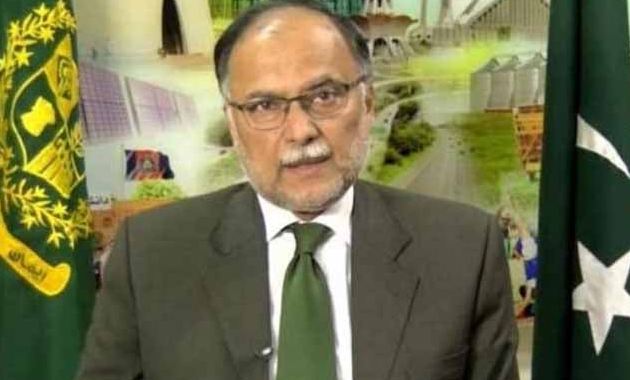Minister for Planning and Development Prof.AhsanIqbal on Tuesday reiterated the government’s commitment to an inclusive development framework that integrates and empowers every citizen, regardless of physical or mental limitations.
Addressing the National Consultation on the United Nations Disability Inclusion Strategy, the minister highlighted Pakistan’s ongoing initiatives for disability inclusion, asserting that equitable progress must be at the core of the country’s development strategy, said a news release.
The event was attended by a diverse audience of government officials, UN representatives and social sector stakeholders.AhsanIqbal emphasized the critical role of human-centric policies in Pakistan’s long-term growth plans.He said, “True development is centered on the empowerment of people, not merely the construction of infrastructure.”
Drawing attention to the government’s Vision 2025 strategy, Prof. Iqbal stressed that Pakistan’s development journey prioritizes advancing its people, including those with disabilities, as a central objective.
“The foundation of Vision 2025 was laid to ensure that human development drives our progress,” he remarked, underscoring the importance of equal opportunities for all. The minister outlined four essential pillars necessary for sustainable growth—peace, political stability, policy continuity, and progressive reforms.
For any development plan to be effective, these pillars must be in place,” Prof.Iqbal said adding that Pakistan’s Vision 2025, originally launched in 2013, aimed to integrate these principles.
However, he acknowledged that political instability has at times hindered Pakistan’s progress, forcing the nation to restart its journey multiple times. The Minister also highlighted several key government initiatives focused on improving accessibility and inclusion for people with disabilities across Pakistan.
He referenced an impactful government project to distribute electric wheelchairs to students with disabilities in higher education institutions, initiated during his previous term as Planning Minister.
“This program ensured that students with disabilities could independently access libraries, classrooms, and laboratories,” he said. Under the project, universities were mandated to install ramps and other accessibility features, enhancing campus environments to support all students’ learning needs.
He said the resumption of the electric wheelchair distribution program during the recent term, which was previously interrupted, underscoring the government’s dedication to providing a supportive infrastructure for students with disabilities.—APP










